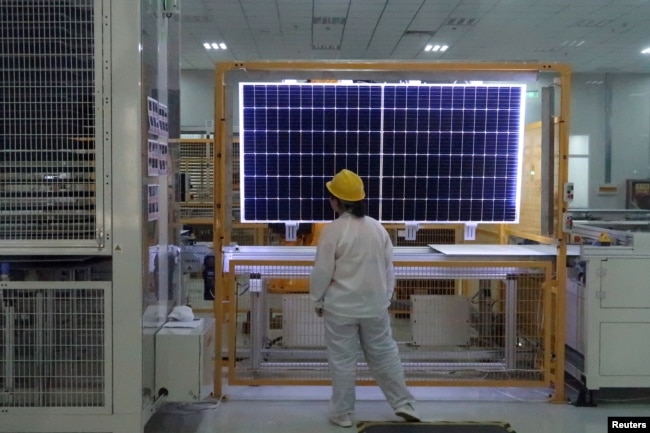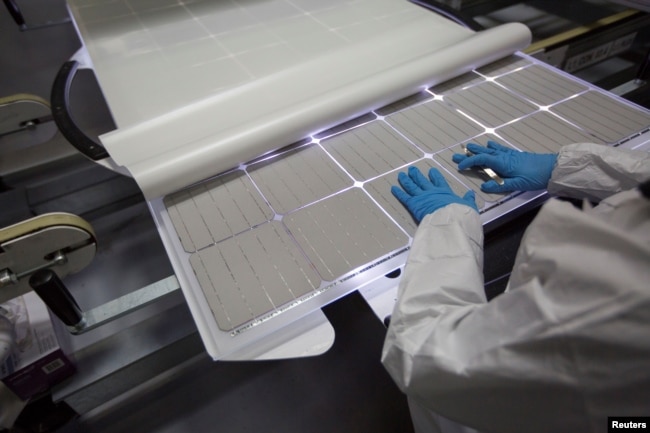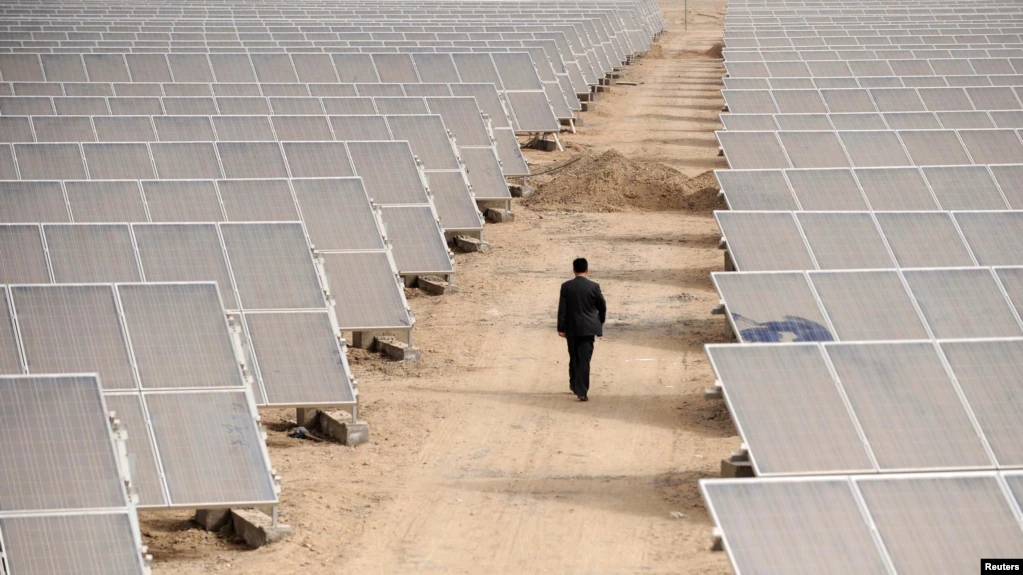An announcement by the U.S. Commerce Department last week that it would investigate allegations that solar panel manufacturers in Southeast Asia are using Chinese-made parts and evading U.S. tariffs has raised alarms concerning both trade and environmental policy.
The department announced March 28 that it would investigate claims by California-based solar panel manufacturer Auxin Solar that solar energy equipment manufacturers in Cambodia, Malaysia, Thailand and Vietnam have close business ties to companies in China that produce the raw materials and some components of solar panel assemblies.
In 2011, the Commerce Department ruled that China was “dumping” solar panels in the U.S. market, or pricing the panels below the cost of manufacturing them. This forced U.S. firms out of the business because they could not operate at a profit while matching Chinese prices.
In response, the Commerce Department imposed tariffs on Chinese solar panels of as much as 250% of their sales price. The result was a rapid decline in U.S. imports of Chinese solar equipment, from $2.8 billion in 2011 to less than $400 million in 2020.

In its complaint, however, Auxin points out that as imports of solar panels from China fell by 86% over that period, imports from Cambodia, Malaysia, Thailand and Vietnam surged by 868%. The company also produced evidence suggesting that during that period, exports of raw materials and solar panel parts from China to the four named countries also surged.
Investigation timeline
In a statement emailed to VOA, a Commerce Department spokesperson confirmed that the investigation had been initiated, saying that “Commerce will conduct an open and transparent investigation to determine whether circumvention is occurring. This inquiry is just a first step — there has been no determination one way or the other on the merits, and no additional duties will be imposed at this time.”
The Commerce Department said it would complete its preliminary investigation within 150 days and make a final determination within 300 days.
So far, the response of the four affected countries to the department’s announcement has been limited. The government of Thailand announced that it had filed a formal letter of complaint with the agency.
VOA reached out to U.S.-based representatives of the governments of Cambodia, Malaysia, Thailand and Vietnam for comment on this story. None had replied by the time of publication.
US solar firms divided
Auxin’s complaint and the Commerce Department’s decision to pursue it have laid bare a major rift within the solar energy industry in the U.S. Many of Auxin’s competitors, who would seem to suffer from the same disadvantages the company describes, have come out against the Commerce Department’s actions, as have industry trade groups.
In a joint op-ed, Tom Kuhn, president of the Edison Electric Institute; Heather Zichal, CEO of the American Clean Power Association; and Abigail Ross Hopper, president and CEO of the Solar Energy Industries Association, said the future for solar energy in the United States would be bleak if tariffs were applied to solar panels coming from the four named countries.

“Make no mistake — if the complainant is successful, solar energy will become as much as two to three times more expensive than it was just one year ago, setting back our efforts to achieve independence, putting hundreds of thousands of U.S. jobs at risk along with the Biden administration’s renewable energy goals,” they wrote.
“If these tariffs are applied, we expect that far less solar generation will be installed in the U.S. during the four years of the Biden administration as compared to previous administrations,” they added.
In a statement, Auxin CEO Mamun Rashid called the warnings of the trade groups “classic fearmongering tactics” and said, “We are grateful Commerce officials recognized the need to investigate this pervasive backdoor dumping and how it continues to injure American solar producers.”
Dilemma for Biden administration
The solar panel case presents a dilemma for the Biden administration because it puts two of the president’s priorities in conflict: assuring a level playing field for U.S. manufacturers, and leading the country to a carbon-neutral energy future.
The relationship between solar panel manufacturers in the United States and those in China is a complicated one. On the one hand, foreign-made solar panels made with Chinese parts are in direct competition with U.S.-made panels. However, U.S. solar firms rely on some of those same Chinese firms for raw materials and components.
Industry officials warned that even the possibility of sanctions being placed on panels imported from the four named countries would cause the rollout of solar energy products in the U.S. to slow dramatically because of uncertainty about costs. This in turn would make it more difficult for the Biden administration to meet its climate goals.
Democratic Senator Jacky Rosen said the Biden administration should look to other ways of supporting U.S. solar energy companies.
“I’m disappointed that the administration is initiating this investigation, because we should be repealing existing solar tariffs, not exploring adding new tariffs,” she told The Hill newspaper March 28. “Direct assistance to American solar manufacturers would be much more meaningful to our domestic solar industry than a trade investigation or tariffs that will only increase consumer costs, threaten good-paying jobs, and set us even further back from our climate goals.”

